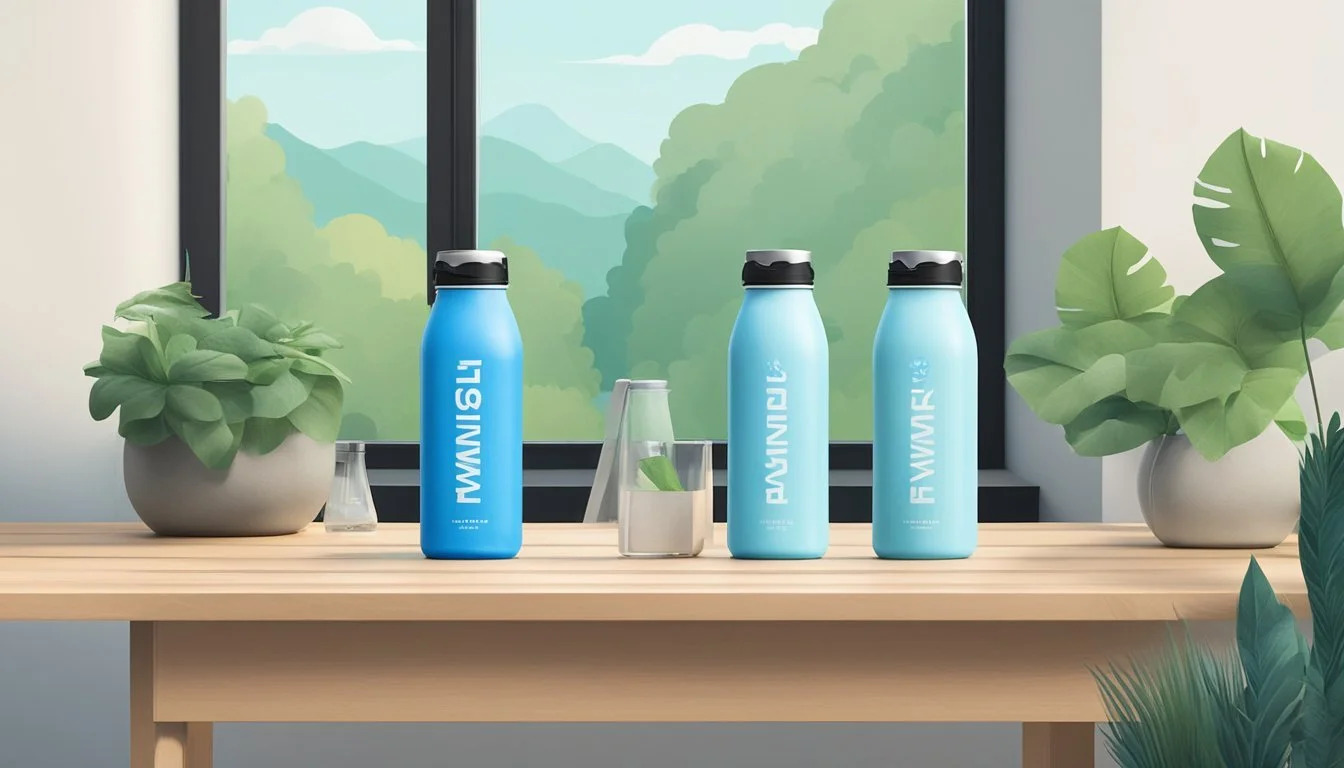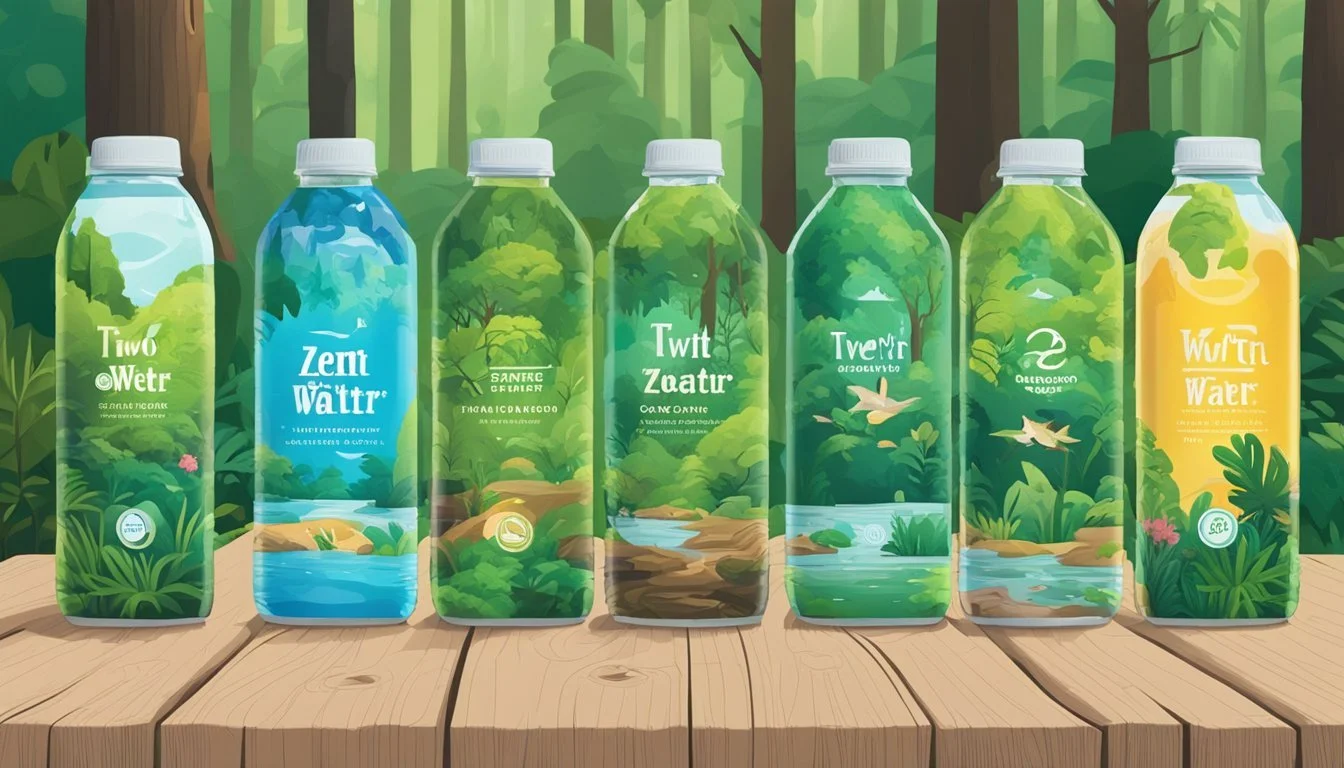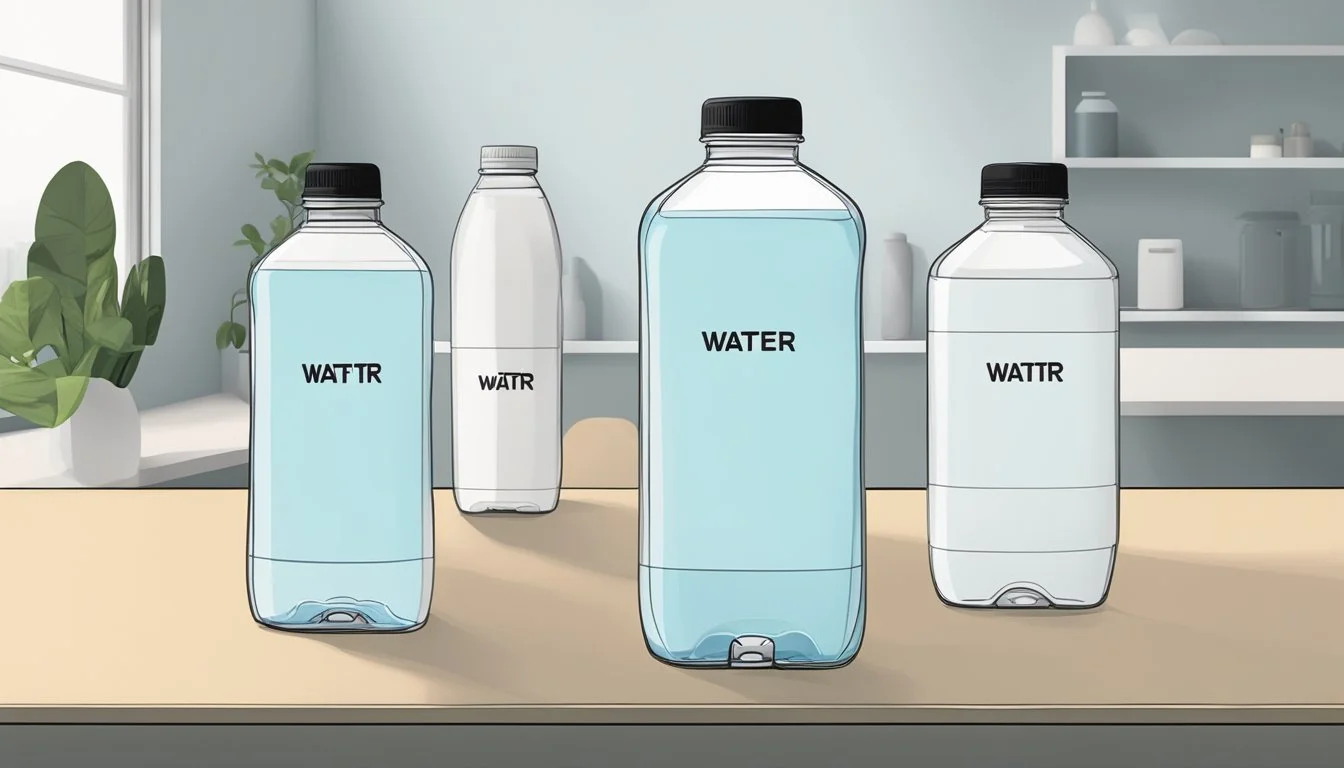Boxed Water vs. Zenwtr
Ultimate Bottled Water Comparison
Boxed Water and ZenWTR represent two innovative approaches to bottled water, each emphasizing sustainability and quality. Boxed Water uses paper-based packaging to reduce plastic waste, appealing to environmentally conscious consumers. ZenWTR stands out with its naturally alkaline water, boasting a pH level of 9.5, which some believe offers added health benefits.
For those deciding which is the better option, Boxed Water excels in sustainability while ZenWTR offers unique health advantages. Boxed Water's packaging comprises 74 percent paper, significantly reducing the reliance on plastic. ZenWTR, on the other hand, provides naturally alkaline water without artificial additives, making it a compelling choice for those seeking both taste and health benefits.
Choosing between Boxed Water and ZenWTR ultimately depends on what consumers value more: sustainability or the specific properties of alkaline water. Both brands provide high-quality water and contribute positively to environmental efforts, giving consumers the opportunity to stay hydrated while supporting sustainability.
Background on Bottled Water
Bottled water became popular in the 1970s and rapidly grew due to its convenience and perceived purity. Today, it is a significant part of the beverage industry.
Plastic bottles are the most common packaging for bottled water. They offer portability and ease of use but contribute to environmental issues.
Single-use plastic bottles are a major concern because they often end up in landfills or oceans, leading to pollution. Only a small percentage gets recycled despite efforts to promote recycling.
Environmental Impact
Plastic pollution: A major issue, as many bottles are not recycled properly.
Use of resources: Producing plastic bottles requires significant amounts of oil and energy.
Pollution: Improper disposal leads to widespread environmental harm.
Sustainable Practices
To address these concerns, companies are turning to more sustainable and recyclable materials. Brands like Boxed Water use cartons made from a mix of paper, aluminum, and plastic film, reducing the overall plastic content.
Recycled plastic is also being used by some brands, like ZenWTR, which focuses on using materials from recycled ocean-bound plastic.
Americans consume millions of plastic water bottles daily. This high consumption rate underscores the need for better recycling practices and more sustainable choices.
Bottled water offers convenience, especially for people on the go. However, the environmental impact of single-use plastic bottles raises significant concerns that the industry continues to address through innovation and responsibility.
Understanding Boxed Water and Zenwtr
Boxed Water and ZenWTR represent two innovative approaches to bottled water, each with distinct properties and environmental benefits.
Overview of Boxed Water
Boxed Water is marketed as a sustainable alternative to traditional plastic water bottles. Founded in 2009, it aims to reduce environmental impact with 92% plant-based packaging. The cartons are made primarily from paper, with a plant-based cap and BPA-free materials.
Boxed Water's mission focuses on minimizing plastic pollution and promoting recyclability. It also highlights the company's commitment to renewable resources. This brand stands out for its eco-friendly approach, aiming to lessen the industry's reliance on non-renewable materials.
Key Features of Zenwtr
ZenWTR differentiates itself through its focus on both health benefits and environmental impact. ZenWTR is alkaline water with a pH of 9.5, promoting hydration and balance in the body. This level of alkalinity is achieved naturally, without artificial additives.
ZenWTR bottles are made from 100% post-consumer recycled plastic, mainly ocean-bound plastic. This approach helps reduce waste and plastic pollution. Additionally, these bottles are BPA-free and designed to be fully recyclable, contributing positively to environmental conservation efforts.
By offering electrolytes and minerals, ZenWTR positions itself as a premium choice in the bottled water market, appealing to health-conscious consumers. It combines sustainability with a focus on providing clean and balanced hydration.
Environmental Considerations
Boxed Water and Zenwtr offer different approaches to sustainability, with varying impacts on the environment. Key aspects to consider include the effects of plastic, the benefits and challenges of carton recycling, and the sustainability of their production processes.
Impact of Plastic on the Environment
Zenwtr uses 100% recycled ocean-bound plastic for its bottles. This helps reduce the plastic waste entering our oceans and mitigates the environmental impact. However, the production and recycling of plastic still contribute to carbon emissions and pollution.
Boxed Water uses primarily paper-based packaging with a small percentage of plastic and aluminum. This blend reduces reliance on fossil fuels but introduces complications in recycling due to the mixed materials.
Paper and Carton Recycling
Carton recycling is less widespread compared to plastic. While Boxed Water's packaging is mainly paper, it contains plastic film and aluminum, making it more challenging to recycle.
Regions with advanced carton recycling programs can manage these materials more effectively, but in areas lacking such facilities, the environmental benefits diminish. In these cases, unprocessed cartons might contribute to landfill waste, offsetting their eco-friendly design.
Sustainable Production Processes
Boxed Water emphasizes its use of renewable resources. The paper used is often sourced from sustainably managed forests, reducing the carbon footprint associated with its production.
Conversely, Zenwtr's process of converting ocean-bound plastic into new bottles helps address pollution but still involves energy-intensive practices. Both brands aim to be eco-friendly, yet their methods highlight different strengths and weaknesses in sustainability practices.
Health and Safety Aspects
Consumers prioritize water quality and hydration benefits when selecting a bottled water brand. Comparing Boxed Water and ZenWTR offers insights into both their safety features and health advantages.
Water Quality and Safety
Boxed Water ensures high purity through its purification process, which includes ultraviolet light, carbon filtration, and reverse osmosis. This multi-step method removes impurities such as chlorine and potential contaminants.
ZenWTR, known for its natural alkalinity with a pH of 9.5, does not rely on artificial additives. This quality reduces the risk of introducing unwanted chemicals. Both brands also emphasize BPA-free packaging, addressing concerns around harmful plastic chemicals.
Boxed Water's cartons are made from a mix of sustainable paper, aluminum, and plastic film. This composition helps maintain water integrity and ensure safety by keeping the water free from microplastics and contaminants.
Hydration and Health Benefits
ZenWTR's naturally alkaline water supports better hydration and balances body acidity, which may enhance physical well-being. The high pH can neutralize acidic waste in the body.
Boxed Water focuses on imparting hydration benefits without altering the natural properties of water. The purified water ensures contamination-free consumption, promoting better overall health.
ZenWTR’s alkaline nature potentially offers additional benefits like improved muscle function and regulation of blood pressure. Both brands cater to health-conscious consumers by providing clean, safe, and effective hydration solutions.
Boxed Water's plant-based packaging also limits plastic waste impact, making it a popular choice for environmentally-aware consumers seeking reliable hydration.
Consumer Experience
Consumers have varying needs when choosing bottled water, which can be influenced by taste, packaging design, and ease of use. Both Boxed Water and ZenWTR offer unique features to cater to different preferences.
Taste Comparison
Boxed Water offers a neutral taste with a slight crispness, enhancing the hydration experience. Its flavor is often described as clean and refreshing, without any aftertaste.
ZenWTR, on the other hand, provides a premium alkaline water experience that appeals to health-conscious consumers. Users have noted its smooth texture and subtle taste, which can be more appealing to those looking for a less acidic option.
Some consumers prefer flavored waters, and while neither brand offers these options, Just Water's fruit-infused varieties with flavors like lemon, cucumber, and watermelon are worth mentioning for those seeking flavored hydration.
Packaging and Design
Boxed Water uses a paper-based carton that is primarily plant-based, positioning itself as an eco-friendly alternative to traditional plastic bottles. The carton is lightweight and features a milk box-style design that many find fun and unique.
ZenWTR stands out with its packaging made from 100% recycled ocean-bound plastic, emphasizing sustainability. The sleek design of ZenWTR bottles appeals to environmentally conscious consumers who are also looking for a stylish product.
For those exploring other sustainable packaging options, canned water in aluminum, glass bottles, and stainless steel reusable water bottles are also becoming popular due to their recyclability and reusable nature.
Ease of Use and Accessibility
Boxed Water is easy to carry and store due to its rectangular shape, which can be more convenient for packing in bags and boxes. The cap is easy to open, making it accessible for a quick drink on the go.
ZenWTR provides convenience through its durable plastic bottle, which can withstand dropping and rough handling. Its bottle design also includes a secure cap, reducing the likelihood of leaks, and making it a reliable choice for outdoor activities or travel.
Both brands are widely available in stores and online, ensuring easy access for consumers looking for sustainable bottled water options.
Market and Industry Analysis
Boxed Water and ZenWTR are positioned uniquely within the competitive landscape of the beverage industry, capitalizing on growing consumer preferences for sustainable packaging amidst environmental concerns.
Competitor Analysis
Boxed Water and ZenWTR face stiff competition from established brands and emerging players. Boxed Water distinguishes itself by utilizing cartons made from 74% paper, 25% plastic, and 1% aluminum, appealing to environmentally conscious consumers. ZenWTR, on the other hand, features bottles made from 100% recycled ocean-bound PET plastic.
Major competitors include Liquid Death Mountain Water, known for its edgy branding and aluminum cans, and Flow Alkaline Spring Water, which also uses sustainable packaging. Poland Spring, with a long-standing market presence, maintains a significant market share despite facing criticism over plastic usage.
Retailers and airlines, such as Whole Foods Market and Alaska Airlines, are increasingly stocking these eco-friendly options, reflecting broader market trends toward sustainability and impacting shelf space and visibility.
Consumer Trends
Consumer preferences are shifting towards sustainable and convenient packaging. Individuals are increasingly prioritizing the global impact of their purchases, showing favor to brands like Boxed Water and ZenWTR that support environmental initiatives, such as protecting at-risk coastal environments.
Convenience also plays a critical role, with consumers seeking products that align with their active lifestyles. This trend has bolstered the popularity of alternatives to tap water that offer both health benefits and environmental conscientiousness.
Brands leveraging these trends provide clarity about their ingredients, like Hint with its flavored waters, appealing to health-conscious demographics. The market's shift reflects a blend of change in consumer values, demanding both high-quality hydration and responsibility toward environmental stewardship.
Sustainable Initiatives and Corporate Responsibility
Boxed Water and ZenWTR have both emphasized their commitment to sustainability and corporate responsibility. These efforts cover various areas such as environmental programs and strategic collaborations that focus on reducing their environmental footprint.
Environmental Stewardship Programs
Boxed Water is dedicated to environmental sustainability. Their cartons are made from 74% paper, 1% aluminum, and 25% plastic ensuring durability and recyclability. The use of paper packaging offers significant environmental benefits as it reduces plastic pollution. The paper is also FSC-Certified, ensuring it comes from responsibly managed forests that provide environmental, social, and economic benefits.
ZenWTR, on the other hand, utilizes 100% post-consumer recycled bottles. This innovative approach significantly reduces the amount of new plastic introduced into the environment. By using ocean-bound plastic, they help combat marine pollution directly. The brand's efforts aim to not only offer a product but also make a tangible difference in reducing CO2 emissions and plastic waste.
Collaborations and Partnerships
Boxed Water collaborates with various environmental organizations to bolster their corporate responsibility efforts. One of their notable partnerships is with the Ocean Blue Project, an initiative focused on cleaning beaches and waterways. This collaboration helps in promoting public awareness about pollution and encourages consumers to make eco-friendly choices.
ZenWTR has teamed up with organizations that align with their mission to reduce ocean pollution. Their partnerships are geared towards supporting programs that focus on retrieving and recycling ocean-bound plastics. These collaborations are instrumental in enhancing the overall impact of their sustainability goals, providing both environmental and social benefits.






